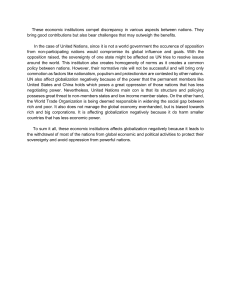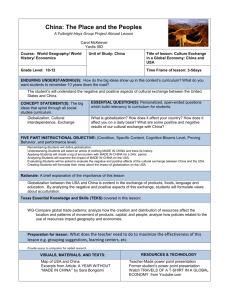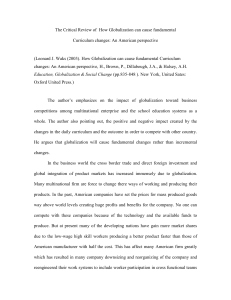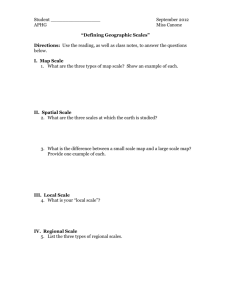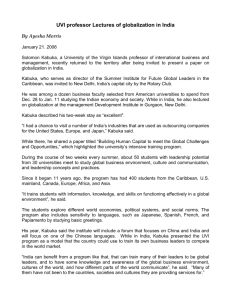Globalization History note
advertisement
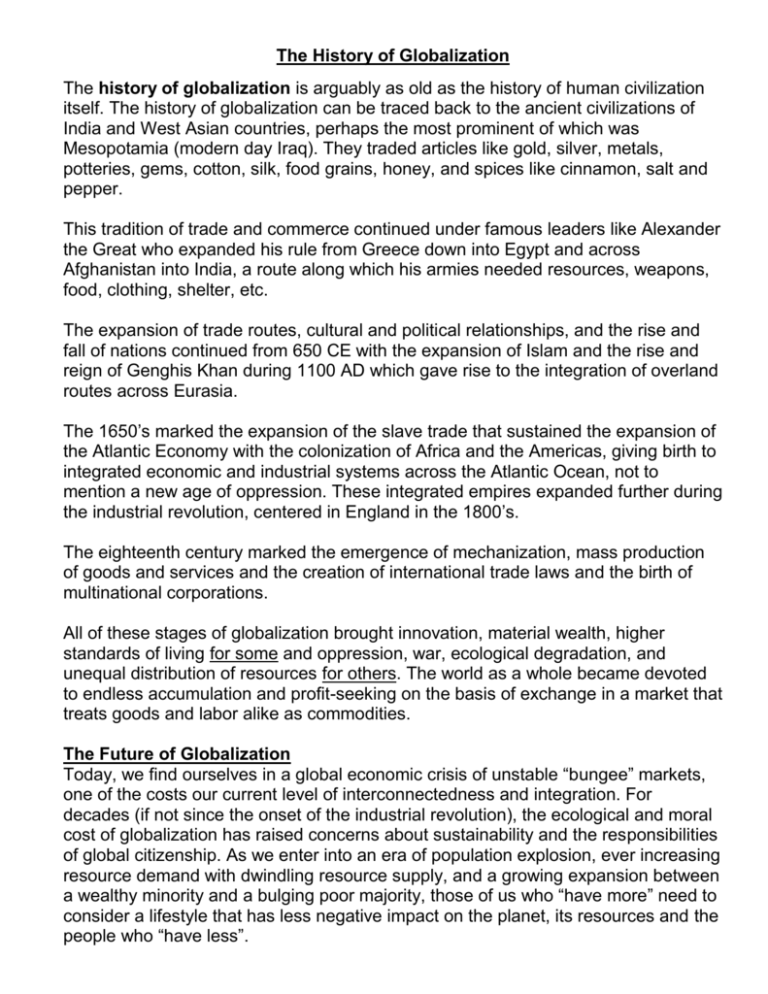
The History of Globalization The history of globalization is arguably as old as the history of human civilization itself. The history of globalization can be traced back to the ancient civilizations of India and West Asian countries, perhaps the most prominent of which was Mesopotamia (modern day Iraq). They traded articles like gold, silver, metals, potteries, gems, cotton, silk, food grains, honey, and spices like cinnamon, salt and pepper. This tradition of trade and commerce continued under famous leaders like Alexander the Great who expanded his rule from Greece down into Egypt and across Afghanistan into India, a route along which his armies needed resources, weapons, food, clothing, shelter, etc. The expansion of trade routes, cultural and political relationships, and the rise and fall of nations continued from 650 CE with the expansion of Islam and the rise and reign of Genghis Khan during 1100 AD which gave rise to the integration of overland routes across Eurasia. The 1650’s marked the expansion of the slave trade that sustained the expansion of the Atlantic Economy with the colonization of Africa and the Americas, giving birth to integrated economic and industrial systems across the Atlantic Ocean, not to mention a new age of oppression. These integrated empires expanded further during the industrial revolution, centered in England in the 1800’s. The eighteenth century marked the emergence of mechanization, mass production of goods and services and the creation of international trade laws and the birth of multinational corporations. All of these stages of globalization brought innovation, material wealth, higher standards of living for some and oppression, war, ecological degradation, and unequal distribution of resources for others. The world as a whole became devoted to endless accumulation and profit-seeking on the basis of exchange in a market that treats goods and labor alike as commodities. The Future of Globalization Today, we find ourselves in a global economic crisis of unstable “bungee” markets, one of the costs our current level of interconnectedness and integration. For decades (if not since the onset of the industrial revolution), the ecological and moral cost of globalization has raised concerns about sustainability and the responsibilities of global citizenship. As we enter into an era of population explosion, ever increasing resource demand with dwindling resource supply, and a growing expansion between a wealthy minority and a bulging poor majority, those of us who “have more” need to consider a lifestyle that has less negative impact on the planet, its resources and the people who “have less”.

